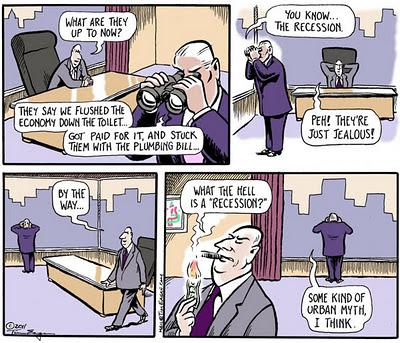
If some people read and understand what they have written here, they would understand they have far more in common with the occupy movement than the Tea Party.
Many officials of the Democratic Party have either personally appeared at Zuccotti Park to express support or sent statements of support for the protesters. Likewise, a number of union leaders joined a large protest rally held in New York City’s Foley Square on October 5 to show sympathy for the protesters.
Then there are the liberal political pundits and media outlets such as the New York Times that are also trying to build bridges between the Democratic Party and the Occupy movement in an effort to channel the protesters’ energy to the party’s electoral machine. For example, New York Times’ columnist Paul Krugman recently wrote: “And there are real political opportunities here. Not, of course, for today’s Republicans. . . . But Democrats are being given what amounts to a second chance. The Obama administration squandered a lot of potential good will early on by adopting banker-friendly policies. . . . Now, however, Mr. Obama’s party has a chance for a do-over.”
On the face of it there is nothing wrong with the Democratic Party officials or union leaders expressing support for the protesters. In light of their actual economic policies, however, that support can be characterized only as hypocritical. The Democrats are as much responsible for the economic problems that have triggered the protests as their Republican counterparts. The Obama administration has played an especially destructive role in pursuing a devastating neoliberal austerity agenda in terms of bailing out the Wall Street gamblers, extending the Bush tax breaks for the wealthy, expanding the US wars of choice—and then cutting vital social spending to pay for the financial resources thus usurped.
Equally blameworthy are union bureaucrats who have enabled the White House and the Congress in the implementation of such brutal austerity programs. Hollow posturing aside, the AFL-CIO has opposed neither the neoliberal austerity policies at home nor the imperialist wars of aggression abroad. Well-paid union officials have not even seriously challenged factory closures; nor have they earnestly resisted brutal cuts in workers’ wages and benefits.
In projecting sympathy for the Occupy Movement, the Democrats are essentially trying to have their cake and eat it too! Their efforts to express support for the protests can be interpreted only as opportunistic and utilitarian: to identify themselves with the rapidly spreading popular protests against the status quo, to mask the Obama administration’s neoliberal devotion to Wall Street, and to harness the energy of the protesters in order to garner their vote in the 2012 elections.
If successful, this would not be the first time the Democratic Party would have derailed and dissipated social struggles for change; it has a long record of such policies of betrayal, going back all the way to the Populist Movement of the late 19th century. Barack Obama’s promise of change in the 2008 elections in pursuit of garnering the grassroots’ vote was only the latest of the Democrats’ strategy of playing the good cop in order to contain radical energy. Two years earlier they had managed to undermine a vigorous antiwar movement by voicing the protesters’ demands to end the wars in Iraq and Afghanistan if they won the majority seats in the Congress. Having thus gained the control of both houses of the Congress in the mid-term election of 2006, they shamelessly backed away from their promise to antiwar voters.
One can only hope that the Occupy Movement is armed with the knowledge of the Democratic Party’s record of cooptation and betrayal of radical movements; and will therefore chart a political movement of the working people and other grassroots independent of both parties of big business.
